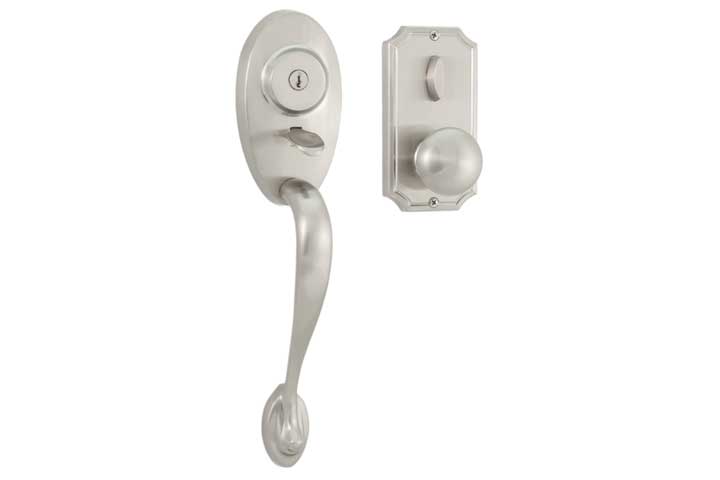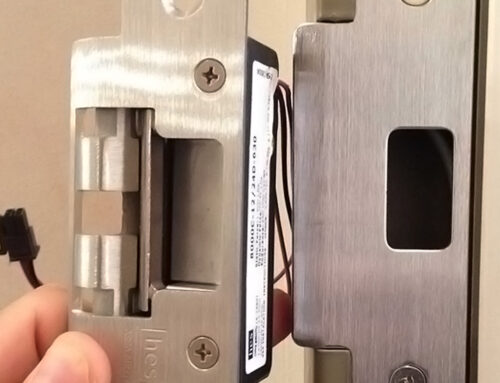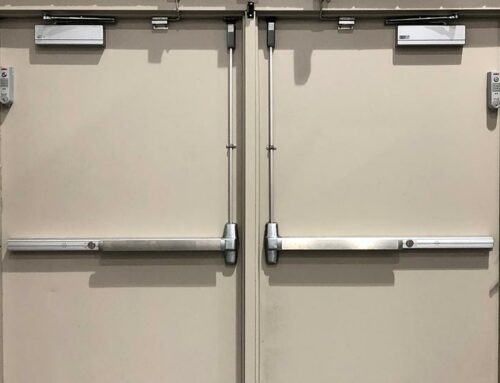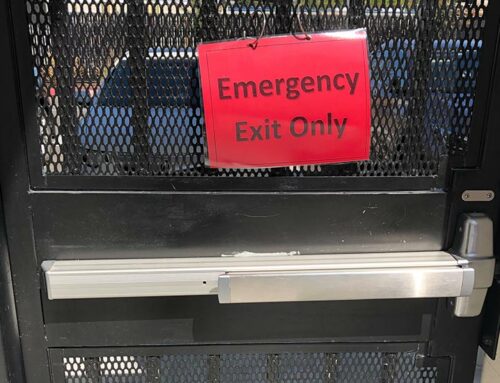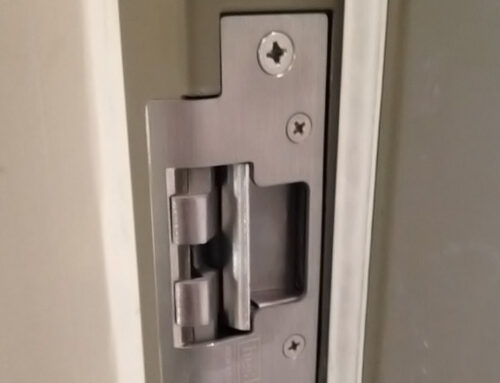Do you have a Weslock interconnected lock on your door? Is it causing you problems, has it broken repeatedly, Is it old and you just want to replace that lock already? I have received several calls lately involving issues with these Weslock interconnected locks. For some reason, these locks seem to be prevalent in the Livermore Valley.
I’d like to speak briefly about these Weslock interconnected locks. I just don’t really care for these locks at all. In fact, when selecting hardware for my projects and clients, Weslock (especially these interconnected models) would be my last choice.
When selecting a lock, just like any other product, there are many things to consider. Some factors are traffic considerations (how many people will use the lock per day), how easily the lock can be integrated with other existing hardware (ability to create master key systems and mechanical access control), security issues, etc. In fact, this is quite a lengthy subject all on its own and something I must write about in a future.
Weslock interconnected lock is a lock that is interconnected. What does this mean? It means that the deadbolt and the handle (latch) are connected within the lock mechanism. If the deadbolt is locked, you can unlock it just by turning the knob or pushing down the lever on the handle. This is considered one action egress (or free egress); when it takes only one action to get both the deadbolt and latch to unlock and open. Fire codes are big on free egress and it is important; especially for commercial applications. For this reason, it can be argued that interconnected locks are safer because you can always get out in the case of a fire without having to unlock another additional lock. Think about hotel rooms. These doors are locked yet are able to open (unlock) easily by merely opening the door (pulling down the handle). Even for residential purposes, interconnected locks can be a good choice.
Many other manufacturers (aside from Weslock) make interconnected locks. However, Weslock seems to be the lock of choice for many residential applications. This is probably due to the design of the Weslock; they are decorative handle sets. Unfortunately, should you have any problems with a Weslock interconnected lock (and they tend to have issues quite frequently) it is not an easy task to replace this piece of hardware.
For some reason, Weslock is the only interconnected lock that has a spacing of only 2 7/8” between the centers of the holes for the deadbolt and the door knob/lever (latch). This is a very small distance. In comparison, the average spacing is 4” (it can vary from 4 to even over 5”). But less than 3” gives us very little clearance. For example, if we want to remove a Weslock interconnected lock and replace it with a separate knob/lever and deadbolt, it is impossible to do this. Why? Because the rosette of the knob/lever and deadbolt would overlap; and this is not a possibility when installing hardware.
When preparing the door to accept a Weslock interconnected lock, we need to drill two (2) 2 1/8” diameter holes. One hole is for the Lever/knob dead latch and one is for the deadbolt. Because the distance between the center of each of these holes is 2 7/8” it means that the distance between the bottom of the deadbolt hole to the top of the dead latch hole is ¾”. This is a very, very small distance and makes it nearly impossible to replace this piece with any other piece (or two separate pieces) from a different manufacturer. It nearly ensures that if you have problems with your Weslock interconnected lock, you will try to fix it or replace it with yet another Weslock interconnected lock.
If we want to replace this Weslock interconnected lock, we are extremely limited with what we can use (or replace it with) without modifying the door (and strike) and drilling new holes (and/or filling old holes). This can lead to an unsightly front door; not something most homeowners want to come home to. The real problem here is that not only are these Weslock interconnected locks difficult to replace (with any other type of lock or locks) but these pieces of hardware are continuously failing. I have worked on dozens of them throughout my years as a locksmith. Unfortunately, I do not consider these to be quality pieces of hardware.
However, there is some good news. Aside from repairing these Weslock units, I’ve found some very nice, aesthetically pleasing replacements. I just replaced one last month and it looks great. The finished product looked very nice and the install required minimal modification to the door. What’s even better is that I replaced it with a quality piece of hardware and that should work reliably and last for many years.
So, if you have a Weslock interconnected lock on your door and it’s causing problems, what should you do? Should you repair it or replace it? If you have the budget, I’d recommend repairing it with another piece of hardware that will be more reliable and secure and, in my opinion, look much nicer. If however, you don’t have the means to replace the hardware, most of the time we can repair it.

